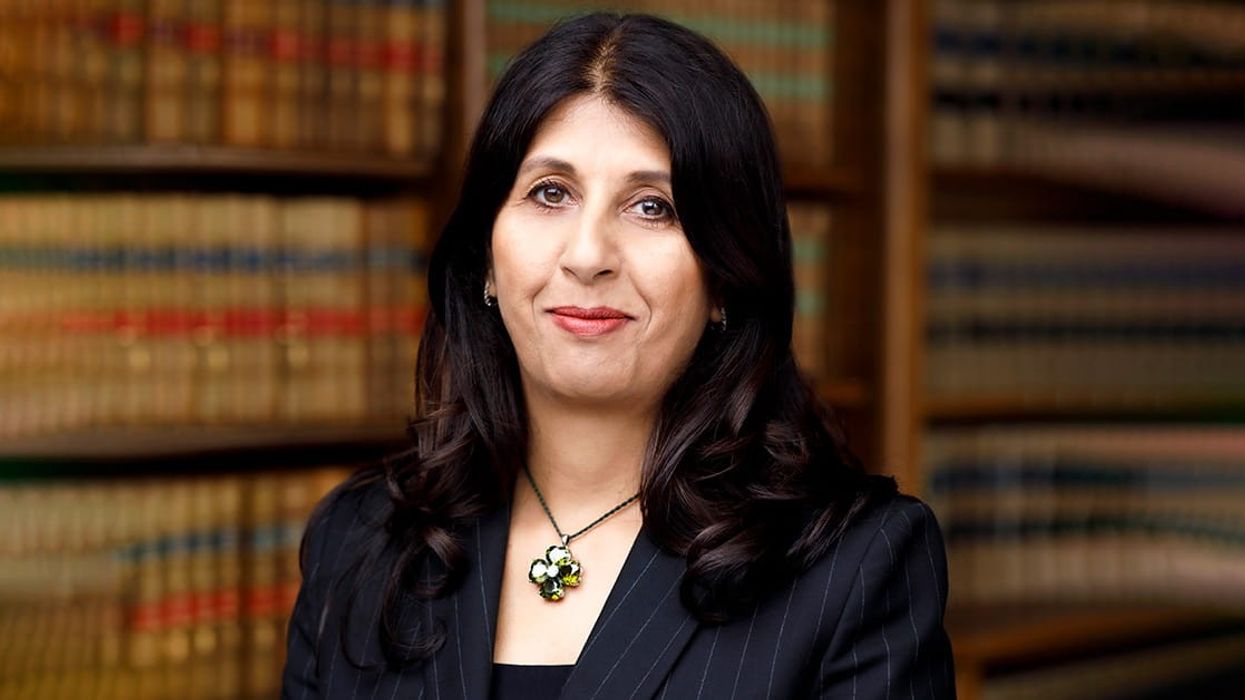Lubna Shuja became first Asian, first Muslim and seventh female president of the Law Society of England and Wales.
She assumed office on Wednesday (12) as the 178th president of the 200-year organisation that works globally to support and represent solicitors, promoting the highest professional standards, a statement said.
Shuja appointment is significant as the profession celebrates 100 years since the first woman, Carrie Morrison, was admitted as a solicitor in England and Wales in December 1922.
Admitted as a solicitor in 1992, she is a sole practitioner who specialises in professional discipline and regulation, and is experienced in contested wills and probate, divorce, child access, personal injury and contractual disputes.
According to the statement, Shuja has been a Centre for Effective Dispute Resolution (CEDR) accredited mediator since 2005, and handles civil, family, probate and commercial disputes.
“I am honoured to serve as Law Society president. I take on the role at a difficult time for the legal profession. The rule of law has been in the spotlight as never before in recent history. The UK’s economy is on a knife-edge and businesses are having to deal with rising interest rates and high inflation,” said Shuja.
“If the pandemic has proven one thing, however, it is that solicitors are resilient and adaptable. They keep the wheels of justice turning by providing services remotely, innovating at pace and ensuring the public can get the justice they deserve.”
She has been a Law Society council member since 2013 and is also a member of the Law Society board. She was the inaugural chair of the membership and communications committee and a past chair of strategic litigation committee in the organisation.
Shuja said that she wants to launch a major focus on ethics in the profession to support solicitors.
“The rule of law is vital to society and democracy. I strongly believe the public should know more about what it does for them and why it is important in their day-to-day lives. Amid the cost-of-living crisis, the public must be able to easily access early legal advice, support and representation," she said.
She will continue to work on improving diversity, social mobility and social inclusion in the profession, the statement added.
“I am the first Asian, first Muslim and only the seventh female president of the Law Society. I am a Northerner, originally from Bradford, and I am from a working-class background. Diversity, social mobility and social inclusion are very important to me," she pointed out.
“I want to understand better the barriers that firms and businesses are facing when trying to reach and promote diverse candidates as well as identify the challenges facing those seeking to enter and progress through the sector. More must also be done to achieve true gender parity in terms of pay and progression."
Shuja added that she will continue to support women members seeking to become judges as well as those wishing to progress to the senior ranks of the judiciary.
“We must work on promoting alternative careers, including pathways to becoming a judge and progressing in the judiciary. I will work with our Solicitor Judges Network, the Ministry of Justice, senior judges and other stakeholders to further open up the judicial ladder,” she said.





